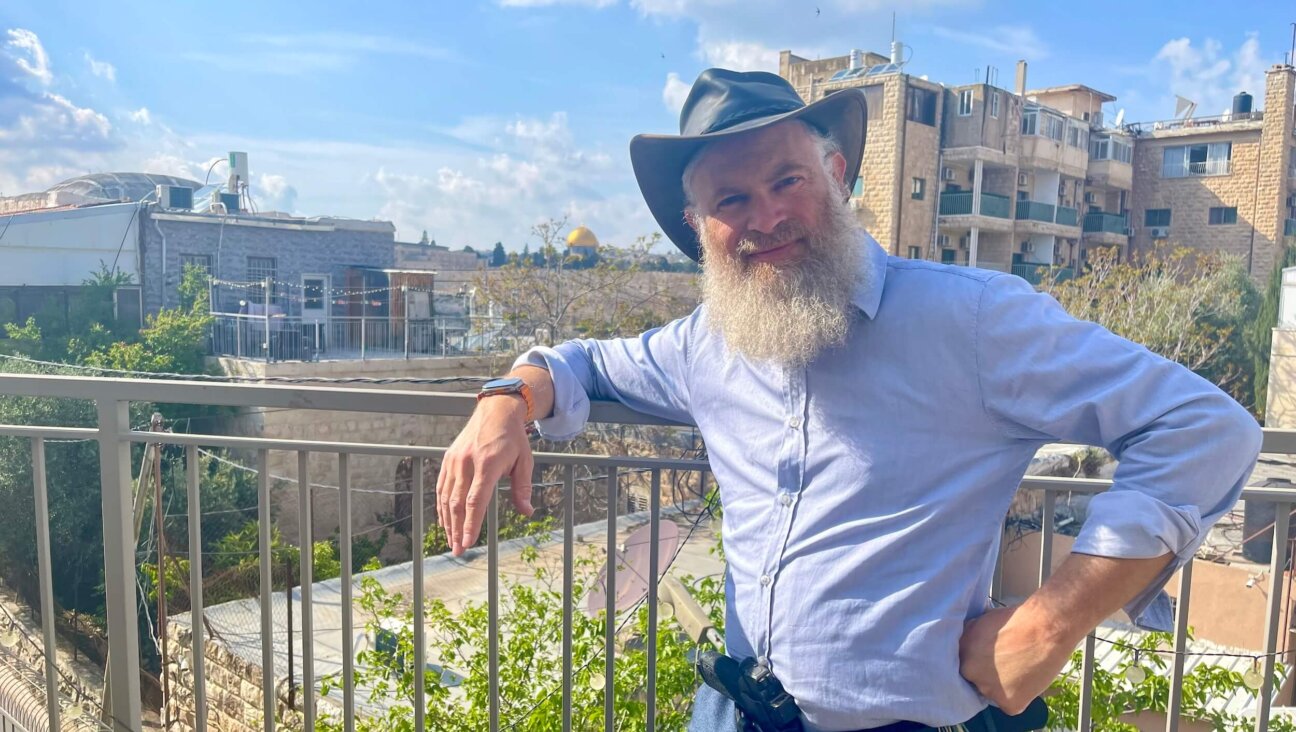Kashrut Certifiers Fight Over Slaughterhouse Turf
A conflict between supervising rabbis at an embattled kosher slaughterhouse has become public, opening a window into the usually closed world of kashrut certification.
Rabbis who represent K’hal Adath Jeshurun, a small ultra-Orthodox community based in the Washington Heights section of Manhattan, have announced that they will not continue to certify products at the huge AgriProcessors slaughterhouse in Postville, Iowa, because, they said, another rabbi is restricting their access to the slaughtering process. Months of negotiations between KAJ and AgriProcessors fell through at the end of last month.
“We are fully cognizant of the momentous repercussions that our decision entails and can assure that we have not taken it lightly,” the rabbis wrote in a letter to AgriProcessors.
Kosher certification for meat is a complicated process that often involves rabbis from several Orthodox communities taking turns at enforcing slightly different standards of shchita, or kosher slaughtering practice. Members of one congregation will not necessarily eat meat that has been certified by a rabbi from a different congregation.
Because of its size, the AgriProcessors plant requires a great deal of rabbinic supervision; one estimate holds that about 70 rabbis — including slaughterers, or shochtim, and overseers, or mashgichim — help to maintain standards at the company. As a result, a designated head rabbi is placed in charge of certification, and a “super-mashgiach” manages the entire process on the ground. Some organizations, including the Orthodox Union, frequently delegate their oversight of the slaughter to that mashgiach, who is entrusted with upholding the specific standards of each congregation.
Until two years ago, the head rabbi at AgriProcessors was Rabbi Chaim Kohn, who is affiliated with KAJ. Kohn played an important role in the scandal that resulted when People for the Ethical Treatment of Animals castigated AgriProcessors for the practice of ripping out live cows’ throats, which some say is condoned by kosher law.
“Kohn helped PETA to understand that the practice did not violate humane standards,” KAJ president Eric Erlbach said.
Kohn left AgriProcessors shortly after the PETA scandal and was replaced by Menachem Weissmandl, who leads a small community in Monsey, N.Y., known as Nitra, after its birthplace in Hungary.
Here, accounts diverge. According to Erlbach, Kohn was pushed out for reasons connected to conflicts with Weissmandl and the Rubashkin family, which owns AgriProcessors. According to Erlbach, upon taking over, Weissmandl quickly hired a new super-mashgiach on his own payroll and began restricting other rabbis’ access to the slaughterhouse.
“From the time that he took over, we have had less and less control over what was going on, less and less ability to supervise,” Erlbach said. “Our certification is based on our ability to supervise the process. We are not willing to cede that control to Rabbi Weissmandl or to anybody else.”
Weissmandl, for his part, claims that the current super-mashgiach was jointly hired by all the rabbis who are involved with supervision at AgriProcessors, including representatives of KAJ, and that the congregation later made an unreasonable demand: that there be a rabbi with the same amount of authority as the super-mashgiach who would oversee only slaughter performed by KAJ standards and report only to KAJ.
“I did everything possible to have a good working relationship with KAJ,” Weissmandl said. “But the Rubashkins and I felt it would not make sense to have two rabbis running the place.”
KAJ and AgriProcessors began negotiating the issue last October, but on December 28, KAJ leaders sent a letter to AgriProcessors announcing that they would “terminate… supervision of all AgriProcessors’ operations” in April.
AgriProcessors responded publicly with a press release that did not mention KAJ by name but suggested that the company had voluntarily terminated the relationship in order to “consolidate its kashrus supervision” behind the O.U. and Weissmandl. AgriProcessors could not be reached for comment.
It is unclear how much of an impact KAJ’s rescinding its certification will have on AgriProcessors’ sales. The company is huge, and the community is relatively small, although it is possible that the KAJ certification holds prestige for those outside Washington Heights.
“I’d like to flatter myself and my congregation by thinking it’s going to make a huge difference,” Erlbach said, “but I haven’t got the foggiest notion.”

I hope you appreciated this article. Before you go, I’d like to ask you to please support the Forward’s award-winning journalism this Passover.
In this age of misinformation, our work is needed like never before. We report on the news that matters most to American Jews, driven by truth, not ideology.
At a time when newsrooms are closing or cutting back, the Forward has removed its paywall. That means for the first time in our 126-year history, Forward journalism is free to everyone, everywhere. With an ongoing war, rising antisemitism, and a flood of disinformation that may affect the upcoming election, we believe that free and open access to Jewish journalism is imperative.
Readers like you make it all possible. Right now, we’re in the middle of our Passover Pledge Drive and we need 500 people to step up and make a gift to sustain our trustworthy, independent journalism.
Make a gift of any size and become a Forward member today. You’ll support our mission to tell the American Jewish story fully and fairly.
— Rachel Fishman Feddersen, Publisher and CEO
Join our mission to tell the Jewish story fully and fairly.
Our Goal: 500 gifts during our Passover Pledge Drive!























